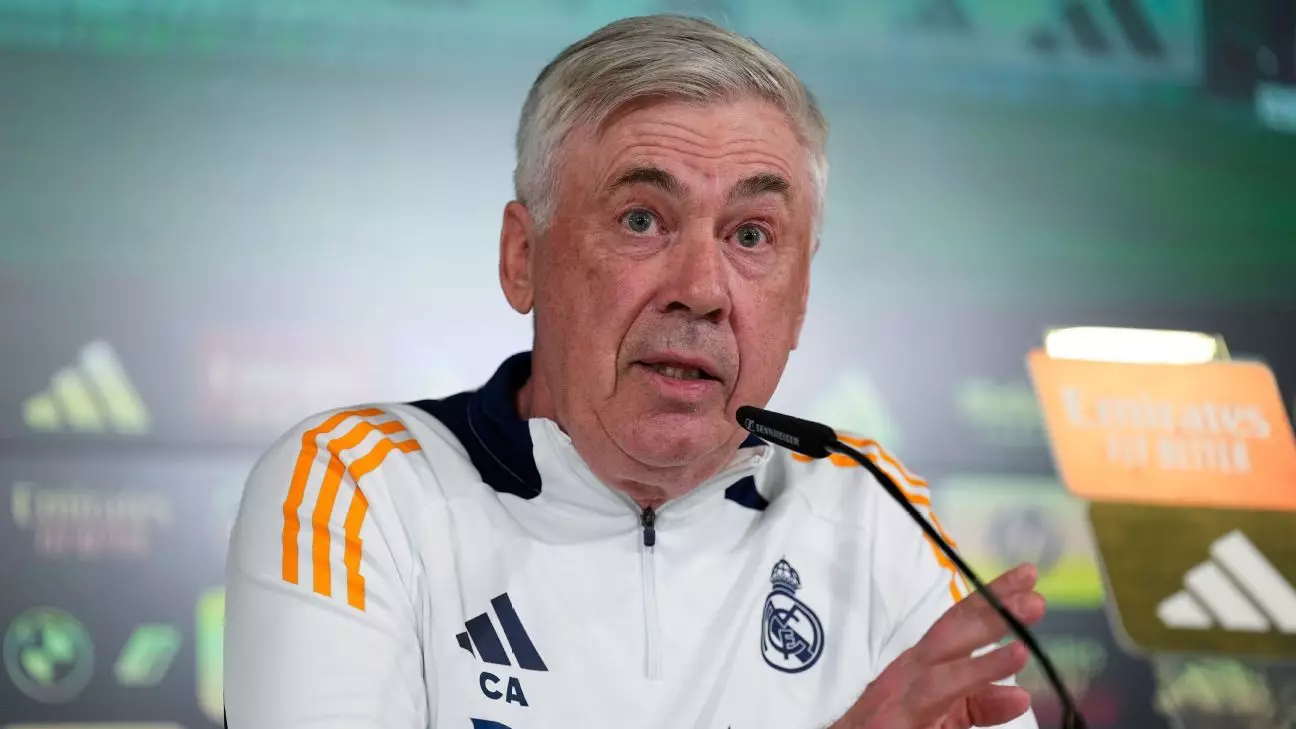In a world where sports often reflect broader societal tensions, the ongoing dispute between Real Madrid and Javier Tebas, president of LaLiga, exemplifies how competitive dynamics can inflame underlying grievances. Recent comments from both sides have escalated an already fraught relationship, with accusations of disrespect and claims of victimization coming to the forefront. Let’s delve deeper into this latest chapter of football politics, exploring the implications for the league, the club, and other stakeholders involved.
Tensions between Real Madrid and LaLiga have been stoked by a series of controversial refereeing decisions affecting the club’s recent performances. Notably, matches against Espanyol, Atlético Madrid, and Osasuna have resulted in dropped points, leading the club to formally address their grievances through a letter to the Spanish football federation (RFEF). The letter highlighted accusations of “manipulation and adulteration,” signaling a deep disenchantment with officiating standards. The frustration expressed by the club not only points to a singular issue of refereeing but signals broader concerns regarding the integrity of competition within LaLiga.
In a recent statement, Javier Tebas poked at Real Madrid, suggesting that their perceived victim narrative was unbecoming of such a prestigious club. By claiming he felt “ashamed” to be a Real Madrid fan, Tebas insinuated that the club was engaging in a “crying” campaign, undermining respect for the sport. This statement serves as a critical pivot in the ongoing dialogue—drawing attention to a potential crisis in leadership and communication within Spanish football. When a leading figure like Tebas resorts to public ridicule, it raises questions about the professionalism and unity within the league’s administration.
Ancelotti’s Retort: Disrespect or Defensiveness?
Carlo Ancelotti, the esteemed coach of Real Madrid, responded vehemently to Tebas’s assertions, emphasizing that public commentary on the club should be approached with caution and respect. He defended the fervor and pride that Real Madrid fans maintain, suggesting that characterizing them as “crying” dismisses the concerns of millions. Ancelotti’s remarks reveal an essential aspect of football—the emotional attachment fans have to their clubs, and how leadership should ideally resonate with their sentiments.
Moreover, Ancelotti criticized the LaLiga president’s focus on Real Madrid, urging for a consensus around addressing more systemic issues plaguing Spanish football. It reflects a coaching philosophy that prioritizes teamwork, unity, and respect—not only at the club level, but also in broader football governance. Such comments illustrate the complex interplay between leadership within clubs and their responsibilities to wider leagues, where collaborative problem-solving should take precedence over discord.
The Role of Media Narratives in Football Politics
This public spat is exacerbated by how narratives are woven through media channels. Real Madrid, being one of the most prominent clubs globally, uses its platform to highlight perceived injustices, further feeding into the narrative of conflict. This case indicates how football clubs have adopted a more confrontational style in the age of social media, allowing for quicker dissemination and wider reach of their grievances.
Tebas’s remarks regarding the conspiracy theories surrounding officiating speak to a broader cultural dialogue emerging in sports. The intersection of media, fans, and club grievances propels the narratives that might not only affect public perception but perhaps also impact player morale and recruitment. When prominent figures like Tebas and Ancelotti engage in a back-and-forth, it inevitably shapes how clubs are perceived by not just their direct supporters but by a global audience.
The discourse also spotlights the calls for reform in refereeing standards. Florentino Pérez, the president of Real Madrid, has vocalized a desire for a change, even suggesting an import of referees from leagues recognized for their standards, such as England. This transparency around officiating issues could either fortify the league’s credibility or deepen fractures among competing clubs. If clubs begin to distrust officiating integrity, the competitive equilibrium of LaLiga might be threatened, fueling already heated rivalries even further.
Ancelotti’s mention of Kylian Mbappé and the situation surrounding young midfielder Arda Güler serves to illustrate that, within the chaos of public narratives, the focus should also remain on team dynamics and nurturing talent. It’s clear that while off-field drama unfolds, the reality of managing team morale and performance rests on the coach’s shoulders—emphasizing that the essence of football often lies beyond mere politics.
The conflict between Real Madrid and the leadership of LaLiga encapsulates a myriad of issues that extend beyond the pitch. Both sides reflect underlying tensions within football governance, fan expectations, and the need for clear communication. As these narratives unfold, the real challenge for clubs like Real Madrid will be to navigate these turbulent waters while preserving the integrity of their brand, the affection of their supporters, and the competitive spirit of football. Moving forward, unity and collaborative approaches will be key to resolving disputes and restoring faith among all stakeholders in Spanish football.
